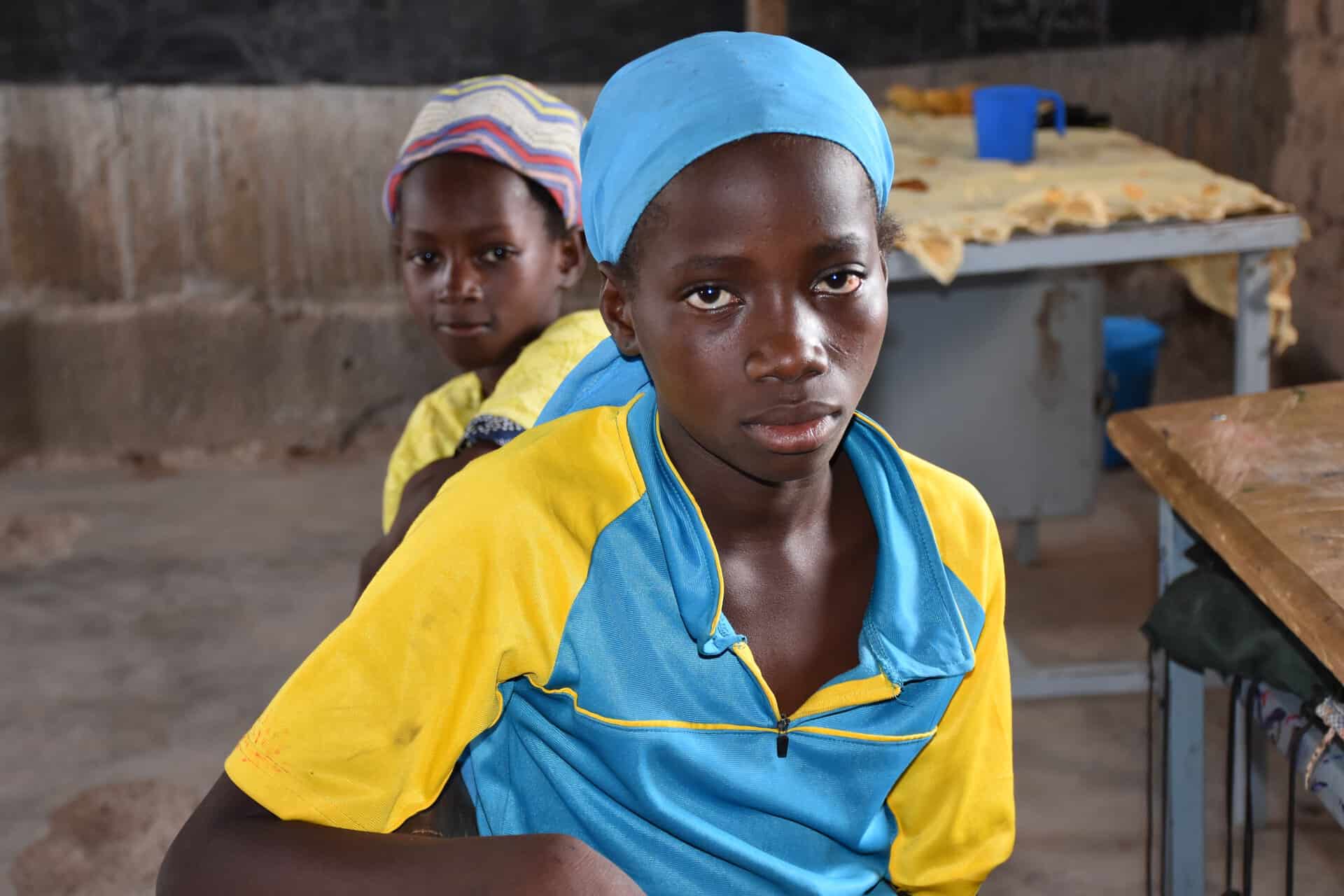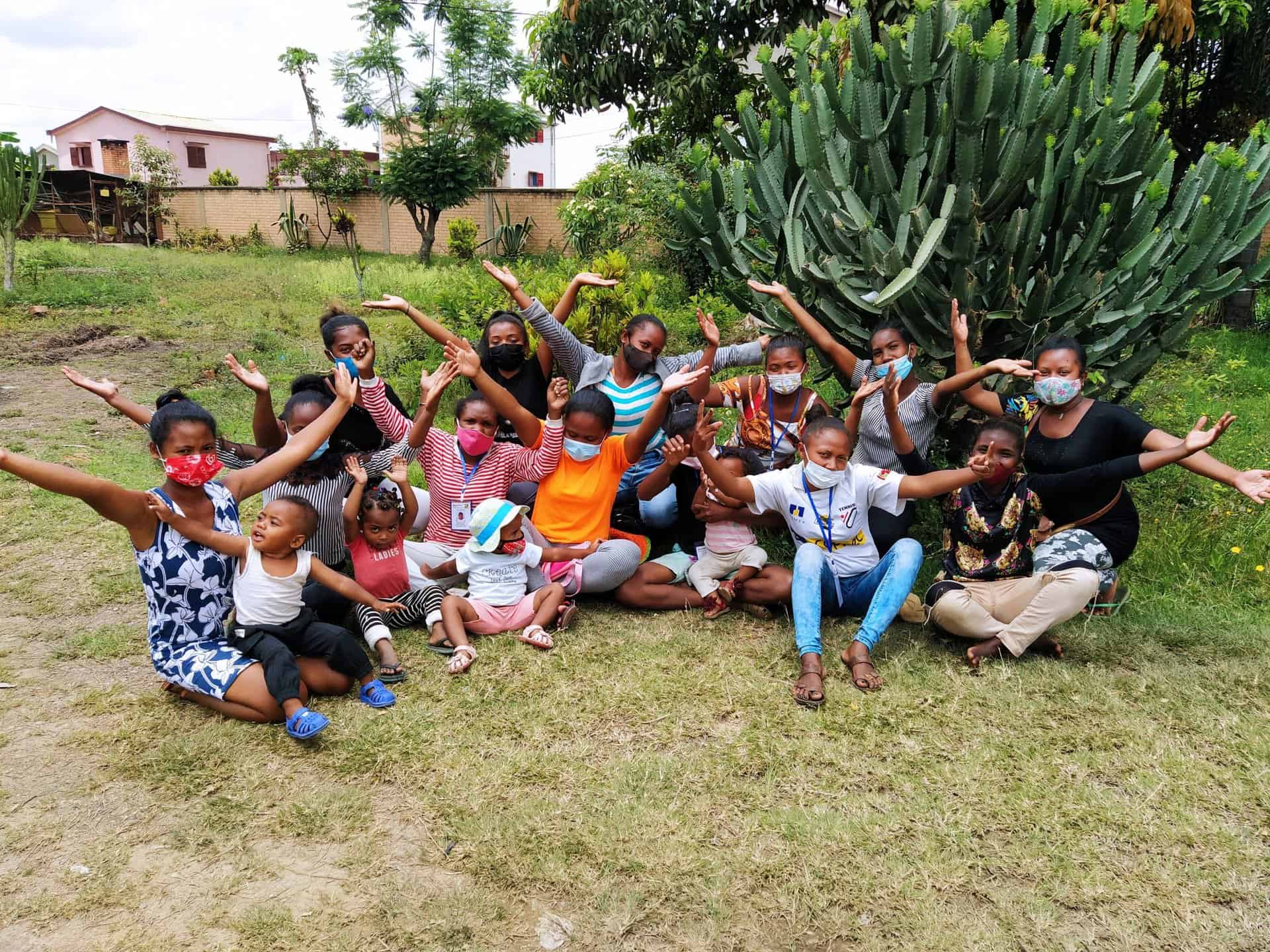Paris, 21 February 2022
Aide et Action In 2022, Aide et Action is revisiting the importance of adolescence for young girls, which is too often neglected, even though it is the key to fighting against gender stereotypes, learning how to have a desired sexuality, acquiring self-confidence, which is a prerequisite for empowerment and the search for financial independence. In the educational programs it is developing in 19 countries, Aide et Action accompanies all young girls, whatever their birth conditions, so that they can trace their own path, other than the one imposed by family, society, religion and gender.
Ensuring access to quality education for all girls has been Aide et Action's priority for over 40 years. However, in order to achieve this right, it is imperative to remove the many obstacles that still deprive more than 130 million girls access to education.
For millions of girls around the world, adolescence is a particularly difficult time. While primary school enrolment and completion rates have improved in recent decades, girls still drop out of secondary school. And for good reason: schools and colleges have rarely been designed to accommodate them. " Half of Cambodia's schools have no access to running water and a third have no proper toilets. Without separate toilets for girls and boys, girls who menstruate are forced to drop out of school at least five days a month. This increases absenteeism and encourages dropping out of school. explains Srey Oun, a Cambodian teacher. Worldwide, 4 out of 10 schools do not have separate latrines for boys and girls.
In most of the rural areas of Aide et Action's intervention countries (especially in sub-Saharan Africa and Asia), going to school as an adolescent is like taking risks (rape, early pregnancy), which many families prefer to protect themselves from by taking the girls out of school. Every year, 12 million girls are married by force and 18.5 million 12-19 year olds become mothers . Through its programs, Aide et Action instills in young girls a full awareness of their rights and the duty to defend them. This is a unique opportunity for our association to change the lives of adolescent girls and the women they will become.
To achieve effective results, Aide et Action has adopted an original method. From the very beginning of its intervention, the association involves local and religious authorities, who are very influential in changing lifestyles and traditions. It is by involving the whole community in its programs that Aide et Action is able to increase the number of girls in school and change mentalities. Improving school transport, building gender-sensitive toilets and organizing the distribution or production of sanitary napkins, with the support of the whole community, are some of the most common and effective ways to keep adolescent girls in school.
In the extremely precarious contexts where Aide et Action intervenes, the poorest families give priority to the well-being and development of boys. And the recent economic crisis generated by the COVID-19 is already weighing heavily on the future of millions of young girls, as it is estimated that between 11 and 20 million of them may never return to school. This is why Aide et Action's programmes focus on guaranteeing all the fundamental rights of girls.
***
About Aide et Action
For 40 years, Aide et ActionThe International Association for Development through Education ensures access to quality education for the most vulnerable and marginalised populations, especially children, girls and women, so that they can control their own development and contribute to a more peaceful and sustainable world.
Because access to quality education helps to fight poverty and disease, limit climate change and build peace in a sustainable world, we promote lifelong learning. We therefore pay particular attention to early childhood care and education, access to and quality of education at primary and secondary levels, and vocational training and social inclusion.
Based on the values of dignity, inclusion and integrity, as well as on the principles of transparency, accountability and solidarity, and thanks to the support of our 51,000 donors, we are currently running 85 projects in Africa, Asia, Europe - and particularly in France - for nearly 3 million children, young people and adults.
Press contact
Anne Cassiot, Press/Public Relations Manager
[email protected]
+33 (0)1.55.25.70.00
***
- UNESCO,2020
- Clear Cambodia
- UNICEF, 2018
- Girls not Brides, 2018
- Global Education Monitoring Report 2019 - Gender Equality Report: Building bridges to promote gender equality, UNESCO, 2019
- Unesco (2020) estimates that nearly 11 million girls will not return to school. The Malala Funds estimate that it is more likely to be 20 million (https://malala.org/newsroom/archive/malala-fund-releases-report-girls-education-covid-19)






